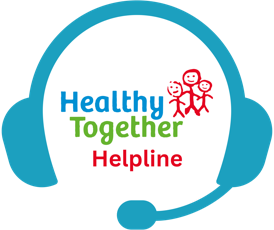Here you will find more information about the screening tests that you may have during pregnancy.
Your midwife will discuss all these tests with you at your first appointment. They will do some of these tests for you at that appointment if you wish. It may be helpful for you to read about these tests before your first midwife appointment.
In pregnancy you will be offered screening for:
- Haemoglobin disorders such as Sickle Cell and Thalassaemia (serious, inherited blood disorders) and infectious diseases such as HIV, Hepatitis B, and syphilis. You will be offered a blood test for these at your booking appointment.
- If a test result shows you have an infection, you will be invited to an appointment with a specialist midwife. The results of these tests will be kept confidential.
- Down’s, Edward’s and Patau’s syndrome:
-
- A combined test uses the results of a blood test and ultrasound scan to work out the chance of your baby having any of these syndromes
- The ultrasound scan will be done between 11 weeks and 2 days and 14 weeks and 1 day of pregnancy
- The scan measures the amount of fluid lying under the skin at the back of the baby’s neck (the NT measurement)
- Your age, weight, family origin and smoking will be used to work out the risk/chance of your baby being affected.
The University Hospitals of Leicester, in partnership with Premaitha Health offer a new option for pregnancy screening for Down’s syndrome and other serious genetic conditions called the ‘IONA test.’ You can choose to have this screening as a private test for £325.
This screening test is only available on the NHS for pregnant people where the results of the screening tests above give a high chance result.
The test involves taking a sample of your blood. The results are usually available within a week. The blood test cannot be done until you have had your dating scan. This is usually done between 11 to 14 weeks of pregnancy.
Click here for more information on the IONA® test.
If this is something you would like to think about, please contact the fetal medicine team:
Leicester General Hospital: 0116 258 4829
Leicester Royal Infirmary: 0116 258 6106
Screening tests later in pregnancy
If you have not been able to have the combined test in early pregnancy, you will be offered a blood test between 14 weeks and 2 days to 20 weeks of pregnancy. This test will be for Down’s syndrome only. It analyses different substances to those measured in early pregnancy. This test is known as the quad (or quadruple) test.
It is important to remember that if you would like a screening test for any of these conditions, this can only be done up to 20 weeks of pregnancy. If you are having problems arranging an appointment to have this test, please contact either your community midwife or the maternity hospital where you plan to have your baby.
If you get a high chance result, (1 in 150), further testing will be offered to you (you may decide not to have any further testing):
- Non-Invasive Prenatal Testing (NIPT) measures the DNA (genetic material) in your blood. It will give an accurate result but not a definite answer
- Diagnostic tests such as chorionic villus sampling (CVS) and amniocentesis. These give a definite answer but slightly increases the risk of miscarriage
The video below explains which screening tests you will have during your pregnancy and after your baby is born:
This video was not produced by Health for Under 5s and may contain adverts.






